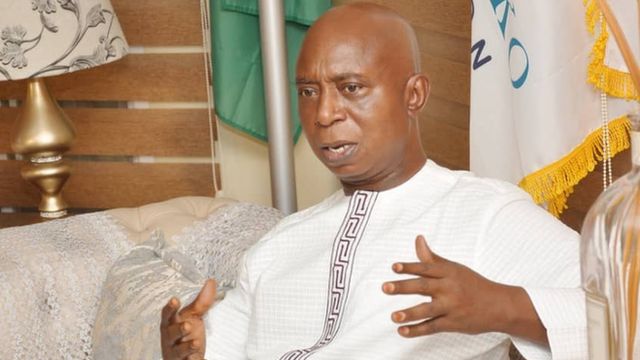In a bold and poignant move, Nigerian policymaker Senator Ned Munir Nwoko, representing the Delta North senatorial district of Delta State, has taken a stand demanding reparations totaling $5 trillion from former colonial powers, notably Britain, for the enduring legacy of slavery, inhuman treatment, and exploitation that have deeply scarred the African continent and its people. Senator Nwoko is not merely seeking financial redress, but also an official apology that acknowledges the colossal damages inflicted on Africans and their resources during centuries of colonization.
“I call for reparations of at least $5 trillion dollars, not as an act of vengeance, but a pathway to healing and restoration,” Senator Nwoko asserted passionately. He emphasized the pressing need to establish a comprehensive reparations framework that can systematically assess the multifaceted damages inflicted by the historical injustices perpetuated by colonial powers.
Senator Nwoko’s call is not just directed at economic restitution, but also at the acknowledgement of the far-reaching consequences of these past atrocities on the African nations, especially Nigeria. He implores former colonial powers and the global community to express sincere apologies to the countries and peoples of the continent, recognizing the deep scars left behind by exploitation and inhumane practices.
“Britain and other colonial powers must eventually address the specific wrongdoings and blatant rape of Africa’s peoples and exploitation of their resources,” Senator Nwoko emphasized. The Senator firmly believes that issuing generic statements to mollify guilty consciences is insufficient. He contends that addressing the specific atrocities committed against the diverse peoples of the continent is imperative. He underscores the necessity for implementing a regime of reparations proportionate to the damage inflicted upon each African territory and its inhabitants.
Senator Nwoko also calls for a reassessment and recalibration of the relationship between former colonial powers and African territories that still grapple with the lasting effects of the historical atrocities. He advocates for investment in vital sectors such as education, healthcare, infrastructure, and economic empowerment within African nations, especially those that have been particularly susceptible to exploitation.
Cultural restitution is also a pivotal aspect of Senator Nwoko’s appeal. He ardently presses for the return of culturally significant artifacts that were forcibly taken from the African continent during the colonial era. While some instances of repatriation have occurred in recent years, Senator Nwoko underscores that genuine justice necessitates the comprehensive restoration of these items to their rightful owners and locations, where they were wrongfully removed from.
Moreover, Senator Nwoko challenges the language used to describe Africa and its people. He questions the practice of simplifying the rich and diverse tapestry of African identity into a single label of ‘blacks’. Drawing parallels with other regions, he asserts that if individuals from Asia are referred to as Asians, those from Europe as Europeans, and those from the Americas as Americans, then it is only just to refer to the people of Africa as Africans.
In this powerful and stirring call to action, Senator Ned Nwoko stands as a fervent advocate for justice, restoration, and healing for a continent that has borne the weight of historical exploitation and injustice for far too long.










